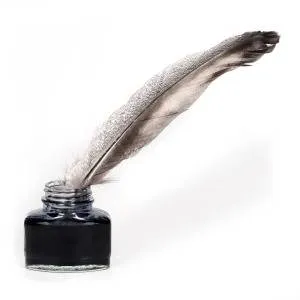
Why Pseudonyms?
This content contains affiliate links. When you buy through these links, we may earn an affiliate commission.
I got to the end of a novel today, and, though I’ve read multiple titles by the author before, I happened to read the About the Author on the last page of the ebook. And I came across a name that was very familiar, but wasn’t the name on the cover of the book.
It was the name of an author whose book–the first in an ongoing series–I had just bought, and am planning to read very soon, as I had heard a lot about it and the author. It was one of three names the author uses in publication.
This is not an uncommon thing to see. Many authors that I both read and avoid write under different names for different genres, or might have even written in the same genre with one name, and then when their other work became famous, re-released their work under their more popular name. Anne Rice has done it, as have Nora Roberts and Meg Cabot. There are plenty of authors who, even though you know their “true” identity, still publish under another name for a particular series or crowd, since people who have been reading them for any amount of time still consider that a go-to name.
I guess it depends on the reader.
I will read anything by Meg Cabot, whether she wrote it as Meggin Cabot, Patricia Cabot, or Jenny Carroll (or even Princess Mia Thermopolis publishing her first romance novel). I don’t read anything by Nora Roberts or J. D. Robb, because I’m not a fan of either writing style. I’ve been meaning to try some of Kinley MacGregor’s work because I loved the first fifteen of Sherrilyn Kenyon’s Dark Hunter novels, and am very intrigued by the premises of several of her series.
But when some authors cross genres, it occasionally just doesn’t work for me. I loved Harry Potter. Loved it. All seven. The Casual Vacancy held absolutely no interest for me.
And even when Robert Galbraith turned out to be J. K. Rowling trying to publish something different without all the fuss (and be recognized for her talent and not her name), it didn’t turn my head. As wonderful an author as she might be, The Cuckoo’s Calling was not a book I wanted to read. The genre is not one that I usually turn to, and the plot summary did not call to me at all. For each of my reader friends who came out of the woodwork to suddenly have an interest in crime procedural and love it like no other, there was another who hated it, thought it was too long, too slow, and oh right! There was no magic.
If only I’d thought to consider that before reading a novel by Madeleine Wickham. Or at least read some reviews.
As Sophie Kinsella, this author writes fun, flighty novels often involving comedies of errors and encounters that I occasionally find too embarrassing to actually be funny. For the most part, they are enjoyable, and they strike that right point between witty and goofy so I can have fun without consulting a dictionary or wanting to beat an author upside the head for trying too hard. You read phone conversations between the characters in I’ve Got Your Number or the stream of consciousness confessions in Can You Keep a Secret and fall over laughing. You want to hide under something for our favorite Shopaholic when she comes across some situation even more embarrassing than the last.
When you’re expecting something like that, Madeleine Wickham can be a bit of a downer. The writing is similar enough in style, but the content is completely different. I started reading The Wedding Girl expecting to read a Sophie Kinsella farce, and ended up being a bit depressed. Sure, there was a bit of the familiar wit, but there was a whole lot of unfamiliar drama. I know there are plenty of authors who write that and lots of people who read them.
I am not that person.
I can understand the many reasons an author will write under multiple names. It builds up a following that doesn’t involve a popular name. It helps keep concepts, genres, and writing styles straight in your own mind, and in the eye of the publisher.
I just hope the one I was really excited about this afternoon turns out to be more of a Patricia Cabot situation and not a Sophie Kinsella one.
What do you do when you find out an author writes under different pseudonyms?




